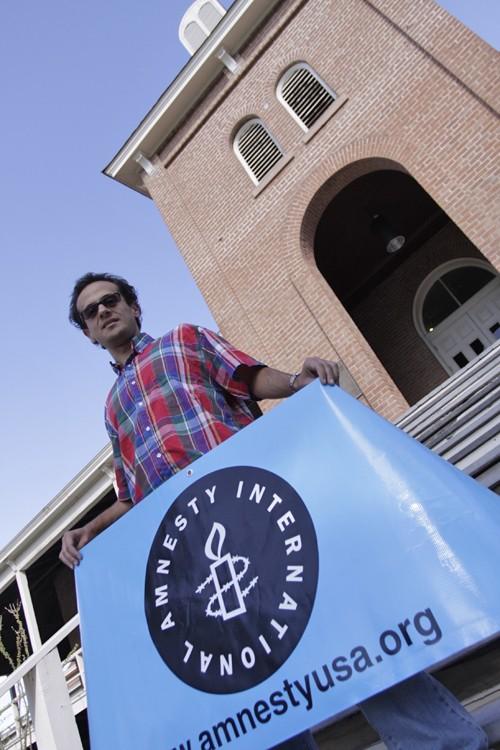Ted Elhourani writes a letter every Thursday afternoon with the rest of his club members in an attempt to provide justice to someone whose human rights have been abused.
Amnesty International is a worldwide movement consisting of people who campaign and protest for recognition of human rights. Elhourani, a Ph.D. student in computer engineering, has been the UA branch’s club treasurer for the past two months.
Their mission, he said, is to research and take action to prevent and put an end to human rights abuses, demand justice through an abundance of handwritten letters and put pressure on governments and politicians.
“”There are demands everywhere for amnesty in the world of human rights, everywhere people would like to have someone help them,”” he said.
The group deals with two to three cases every Thursday at 4 p.m. in the lobby of the Mathematics building.
“”I do not expect people to respond to our letters,”” Elhourani said. “”I am happy when I send a letter because I feel I’ve done something that will make someone’s life in the world better.””
Emmanuelle Fahey, a junior majoring in international studies and French, is in the club and said she got involved because she liked the notion of bettering human rights and she enjoys learning about current events.
“”Every week the first half of our meeting we write urgent action letters to political leaders,”” Fahey said. “”These letters regard prisoners of conscious — people who have been detained for expressing their opinion without ever using violence.””
She said most of the responses the club receives typically state that they appreciate the concern that the club has shown and that they will take their statements into consideration.
Club adviser and math professor Joseph Watkins has been involved in Amnesty International for 27 years.
“”Most people who enjoy Amnesty are not average people,”” Watkins said. “”They would not give hours of their time if there wasn’t something unique about them.””
Many group members find themselves doing human rights work after they graduate, he said. Watkins has seen cases where people have run non-governmental organizations at home and abroad to help refugees.
“”The people are very cool and it’s a great way to learn about international current events that are important — it’s important to be knowledgeable on other countries,”” Fahey said.









